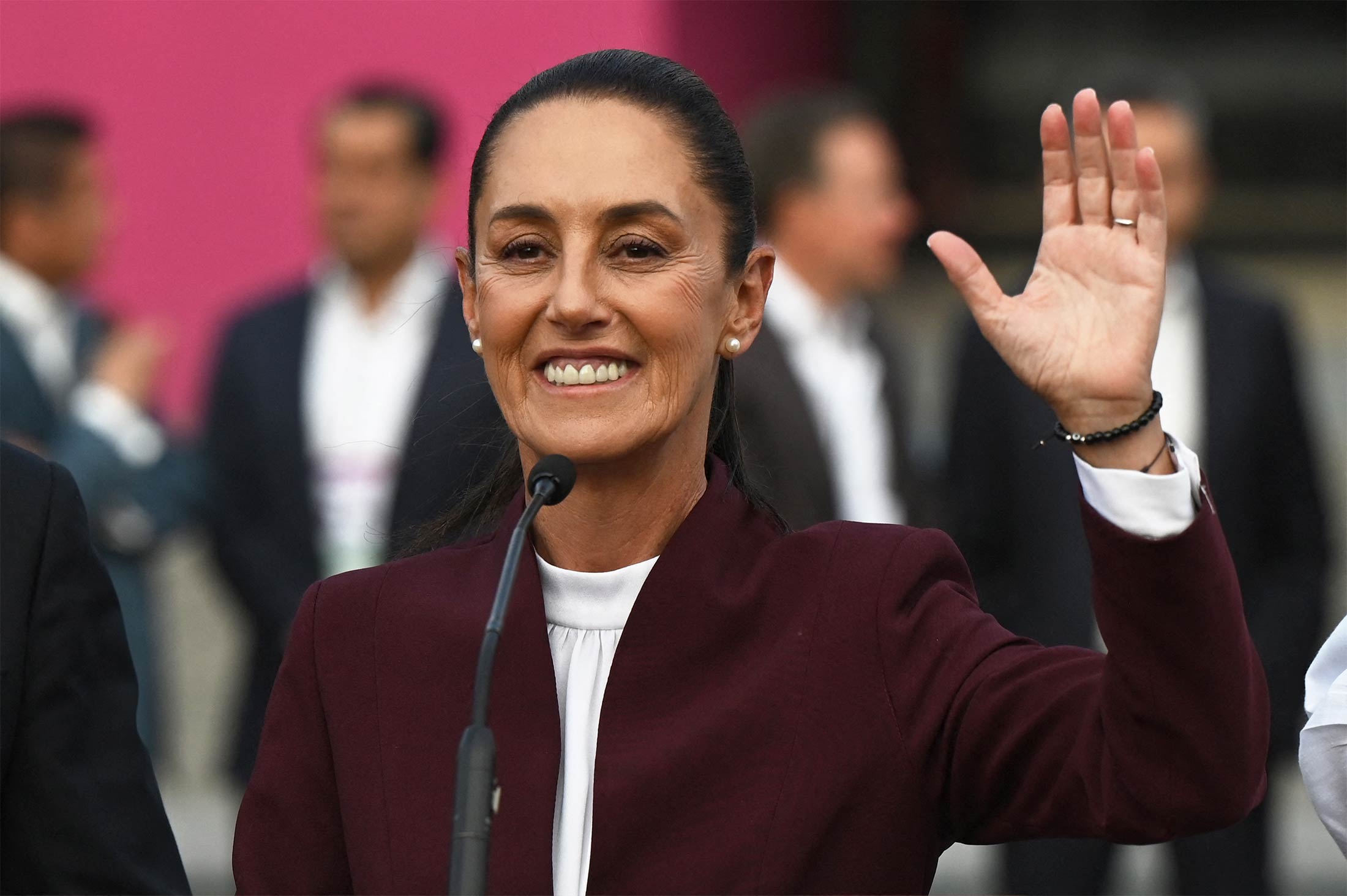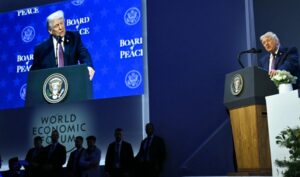
Published 02/06/2024 09:02 | Edited 02/06/2024 09:06
This Sunday (02), Mexico is preparing for a historic election that could lead progressive candidate Claudia Sheinbaum to the presidency. At 61 years old, Sheinbaum, from the Morena party, is widely seen as the favorite, with opinion polls indicating between 52% and 60% of voting intentions. This election not only marks the potential re-election of the ruling party, but it could also be a unique event in the post-pandemic scenario, given the global health crisis.
Violence
This year’s election campaign was intensely marked by drug cartel violence. The Seminar on Violence, a study group linked to the El Colégio de México university, counted the deaths of 30 candidates during the campaign, 73% of them running for mayor.
Claudia Sheinbaum highlighted the reduction in the homicide rate during her term as mayor of Mexico City, from 16 homicides per 100,000 inhabitants in 2018 to 8 homicides per 100,000 inhabitants in 2022. “We have achieved the lowest homicide rate since 1989. Now Mexico City is among the seven entities with the fewest homicides per 100,000 inhabitants”, stated Claudia on a social network, highlighting her success in reducing violence in the Mexican capital during her administration.
Read too: In Mexico, electoral campaigns end early due to political violence
Waldir Rampinelli, history professor at the Federal University of Santa Catarina (UFSC) highlights that violence in Mexican elections is a legacy of the Mexican Revolution of 1910 and the control exercised by drug cartels. “Elections in Mexico are often violent. It is a historical legacy and a reflection of the power of the cartels”, said the professor.
Social politics
Claudia Sheinbaum’s popularity is largely attributed to the success of the social policies of the current president, Andrés Manuel López Obrador (AMLO). Obrador, who is expected to be his successor, implemented programs such as monthly aid for the elderly, which earned him great popular support. “He created a kind of monthly aid for the elderly. Every elderly person, whether or not they have contributed to social security, receives an amount. I know people who, if they didn’t receive this amount, would go hungry. It totally saves these people. They don’t like López Obrador, they love him,” said Rampinelli.
International relations
Relations between Mexico and the United States are a crucial point in the election. Researcher Mario Farid Reyes Gordillo, a doctoral student in Latin American studies at UNAM, highlighted that Mexico’s economic dependence on the USA is a constant challenge. “If Trump wins in the United States, it will make her life even more complicated. More than 500 people die each year crossing the border, just among Mexicans. It is the most dangerous region in the world. Compare that to the Berlin Wall, which 800 people died in 30 years trying to get through,” he recalled.
Women
The feminist movement has gained strength in recent years under López Obrador’s government, directly influencing the candidates’ agenda. “As the two main candidates are women, there is a certain weight to this agenda. The feminist movement, the women’s movement, throughout López Obrador’s six years, had a lot of political participation. This should mean that many women came out to vote in this election,” said Gordillo.
Read too: Mexico chooses on Sunday (2) between two women for the Presidency of the Republic
Rampinelli highlighted that this is an unprecedented situation, as a woman has never won the presidential election in Mexico. “Mexico is certainly the most sexist country in Latin America and Claudia has established herself as a great mayor of Mexico City. With López Obrador’s government, it grew. And López also had no choice but to nominate her. She was the candidate who had the best chance of winning,” she commented.
Mexico and Brazil
With a population of almost 130 million inhabitants, Mexico has the second largest economy in Latin America, behind only Brazil. In 2023, the Mexican economy grew 3.2%, marking the second consecutive year of growth above 3%. The poverty rate has dropped significantly, from 43.9% in 2020 to 36.3% in 2022, lifting 8.8 million Mexicans out of poverty.
Trade relations between Brazil and Mexico have strengthened, with Brazilian exports growing 74% between 2019 and 2023, despite the pandemic. Brazilian imports of Mexican products also increased, totaling US$5.5 billion in 2023, an increase of 4.9% compared to 2022.
__
with information from Agência Brasil
Source: vermelho.org.br

